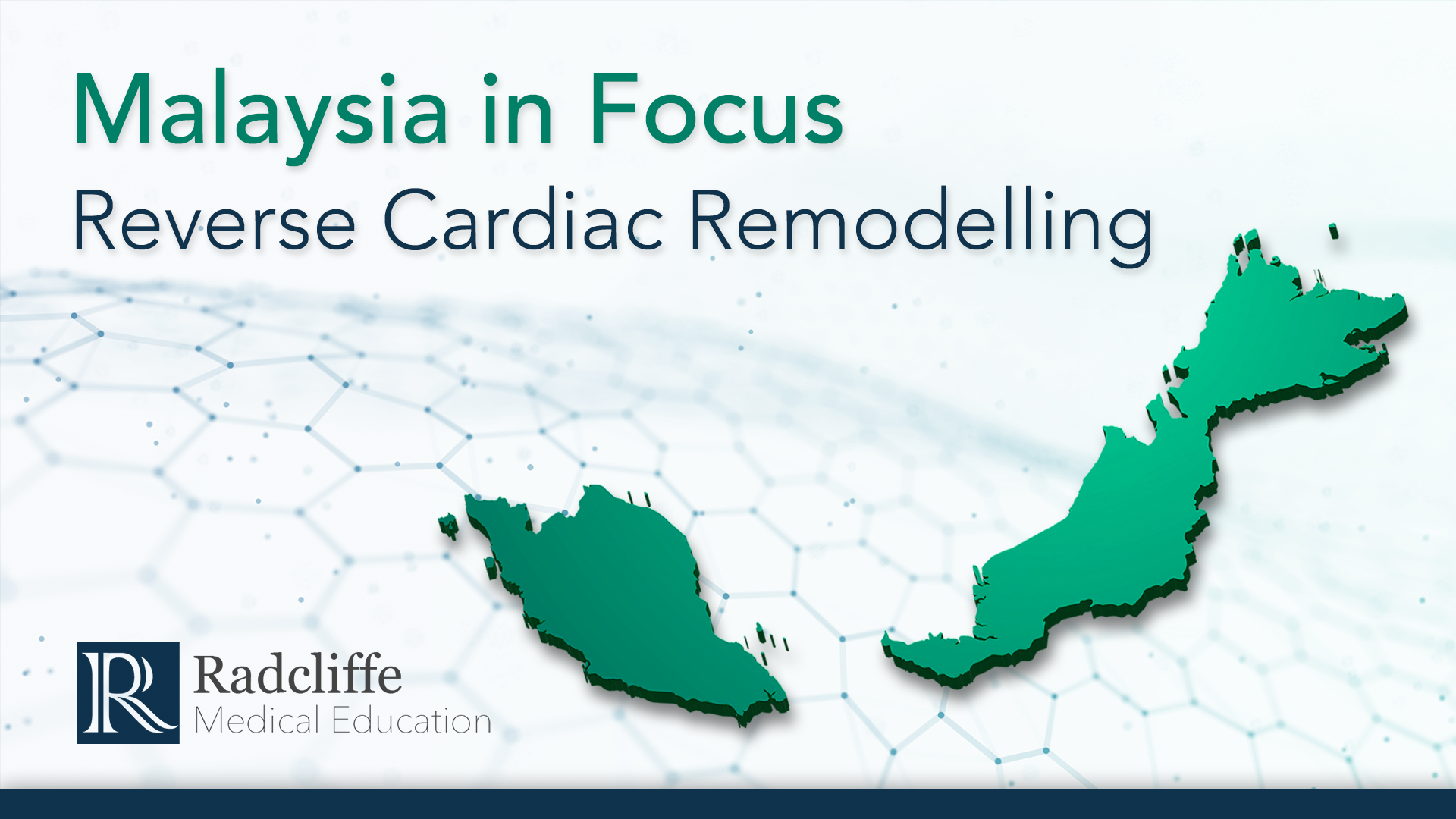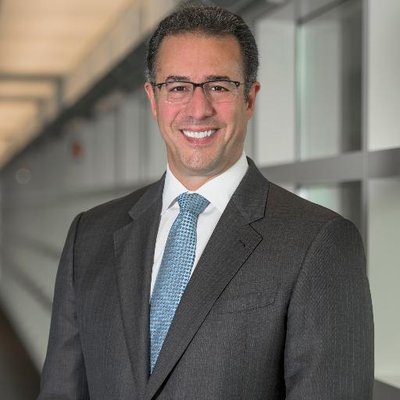Malaysia in Focus: Reverse Cardiac Remodelling
Published: 11 March 2021
-
Views:
 2852
2852
-
Likes:
 7
7
-
Views:
 2852
2852
-
Likes:
 7
7
-
 15m 57sPart 6 Overview of the Evidence
15m 57sPart 6 Overview of the Evidence
Overview
This reverse cardiac remodelling IME programme brings together a leading faculty of internationally-recognised experts, combining presentations and peer-to-peer discussions to provide comprehensive overview of the latest data and opinion around cardiac remodelling.
Beyond the global focus, this programme also seeks – through insight from Dato' Dr David Chew – to frame and contextualise the topics discussed with specific focus on Malaysia, to help support the education of local physicians on pertinent topics including guideline adherence, emerging data, and best practice.
A CPD-accredited version of this programme is available on Radcliffe Education. Click here for further details.

Learning Objectives
- Define cardiac remodelling, with particular focus on the influence of cardiovascular damage, pathogenic risk factors and the structural and functional changes in the left ventricle.
- List the main clinical implications of cardiac remodelling.
- Summarise the relationship between circulating biomarkers, such as NT-proBNP, troponin and sST2, with the extent left ventricular remodelling in subjects with HF.
- Interpret the most recent clinical data from pharmacological and device-based studies in HFrEF and HfpEF.
- Recall the evidence for reverse cardiac remodelling brought about through ARNi therapy, including (but not limited to) PROVE-HF and EVALUATE-HF.
- Review real-world insight into the impact that ARNi therapy has on cardiac reverse remodelling.
Audience
- Practicing cardiologists
- Heart failure specialists
- Health care professionals involved in the diagnosis and management of patients with heart failure
More from this programme
Part 1
Recognising and Treating Cardiac Remodelling in Heart Failure
Part 2
The Clinical Implications of Cardiac Remodelling in Heart Failure
Part 3
Relationships of Cardiac Biomarkers
| 1 session | |
| Relationships of Cardiac Biomarkers | Watch now |
Part 4
Prevalence of HFpEF on the Rise – Treat HFpEF as a Whole, Not Just the Comorbidities
Part 5
ARNI: PARAMOUNT, PARAGON-HF, PARALLAX and Putative Placebo Analysis
Part 6
Overview of the Evidence
| 1 session | |
| Overview of the Evidence | Watch now |
Part 7
Angiotensin Receptor Neprilysin Inhibitors – Renal Safety and Efficacy
Faculty Biographies

James L Januzzi
Director of the Cardiac Intensive Care Unit
Dr James L Januzzi, is an Associate Professor of Medicine at Harvard Medical School and Director of the Cardiac Intensive Care Unit at Massachusetts General Hospital. He has an in-depht experience as a teacher and leads a research programme with specific focus on cardiac biomarker testing.
Dr Januzzi was the top-ranked graduate in his class at New York Medical College. He completed an internship and residency at Brigham and Women’s Hospital prior to performing a clinical and research fellowship in cardiovascular medicine at the Massachusetts General Hospital, where he also completed a fellowship in cardiac ultrasound.
He speaks widely on the topic of biomarker testing in heart disease and treatment of heart failure. He has served as the Cardiology Consultant to the Boston Red Sox since 2005.

David Chew
Consultant Cardiologist, Cardiac Vascular Sentral Kuala Lumpur, Malaysia.
Dato' Dr David Chew Soon Ping is a Consultant Cardiologist at Cardiac Vascular Sentral Kuala Lumpur (CVSKL) in Malaysia.
He is a Fellow of The Royal College of Physicians (FRCP), London, and a Bachelor of Medicine, and Bachelor of Surgery (MBBS), University of Malaya. Dr Chew is published widely in leading international peer-reviewed journals on the subject of heart failure, and is a member of several societies and professional bodies, including the National Heart Association of Malaysia (NHAM).





